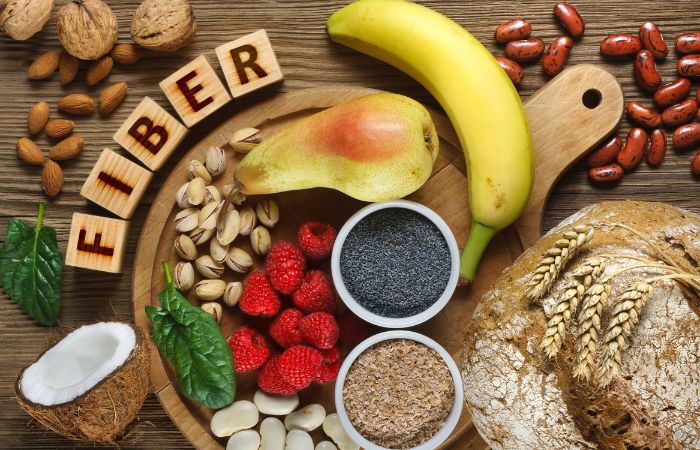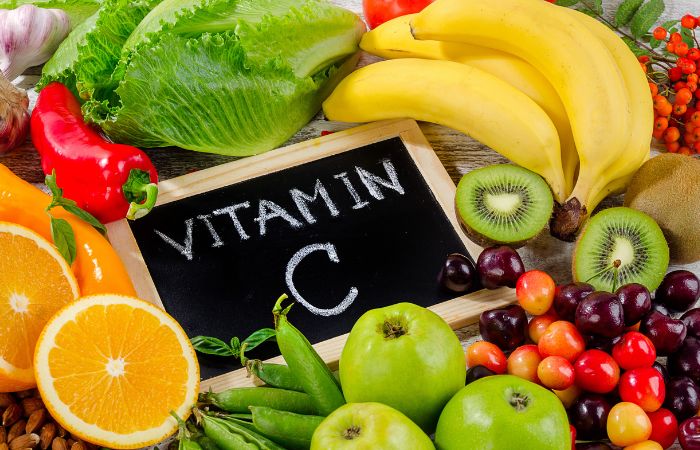
Hemoglobin plays a crucial role in transporting oxygen throughout your body, making it essential for your overall health. Low hemoglobin levels can lead to conditions such as anemia, fatigue, and weakness. While there are several ways to address low hemoglobin, natural methods often work best for long-term health benefits.
Iron is one of the key components of hemoglobin, so increasing iron intake is one of the most effective ways to raise your hemoglobin levels naturally. Foods rich in iron include: Red meat (beef, lamb, etc.), Poultry (chicken, turkey), Leafy greens (spinach, kale), Legumes (lentils, beans, chickpeas), Nuts and seeds (pumpkin seeds, sesame seeds, cashews)
To optimize iron absorption, consider pairing these foods with vitamin C-rich items like citrus fruits or bell peppers, as vitamin C helps increase iron absorption.
Folate, also known as vitamin B9, is another essential nutrient for maintaining healthy hemoglobin levels. It helps in the production of red blood cells. Foods rich in folate include: Leafy green vegetables (spinach, lettuce, broccoli), Fruits (oranges, bananas, avocados), Legumes (beans, peas, lentils), Fortified cereals
Incorporating folate-rich foods into your diet can help improve your overall blood health and raise your hemoglobin levels.
Vitamin B12 plays an important role in red blood cell production. Deficiency in vitamin B12 can lead to low hemoglobin levels and anemia. Foods rich in vitamin B12 include: Meat and poultry (chicken, turkey, lamb), Fish and seafood (salmon, tuna, sardines), Dairy products (milk, cheese, yogurt), Fortified foods (fortified cereals, plant-based milk)
If you are a vegetarian or vegan, you may need to consider B12 supplements or fortified foods to meet your daily requirements.
If dietary changes alone aren’t enough to raise your hemoglobin levels, iron supplements may be a helpful addition. Always consult your healthcare provider before starting iron supplementation, as excessive iron can lead to toxicity. Iron supplements come in various forms, including tablets, capsules, and liquid, and your doctor can guide you on the proper dosage.
Proper hydration is essential for optimal blood circulation and overall health. Dehydration can lead to thicker blood, which can cause a decrease in oxygen levels, putting additional strain on the body. Drinking plenty of water helps keep your blood thin and ensures proper oxygen transportation throughout your body. Aim for at least 8 glasses of water a day to support healthy hemoglobin levels.
Vitamin C plays a vital role in enhancing the absorption of non-heme iron (plant-based iron). By consuming foods rich in vitamin C, such as citrus fruits, berries, and tomatoes, you can increase your body's ability to absorb iron from plant sources. This can help boost your hemoglobin levels naturally. Some excellent sources of vitamin C include: Oranges and grapefruits, Bell peppers, Broccoli, Strawberries, Kiwis.

Certain foods and beverages can inhibit the absorption of iron. To maximize your hemoglobin levels, try to avoid consuming these foods and drinks around the time of your iron-rich meals. Common iron blockers include: Coffee and tea (due to tannins), Calcium-rich foods (such as dairy products when consumed in excess), Phytates (found in whole grains and legumes)
While these foods are nutritious, it is important to consume them separately from iron-rich meals to prevent absorption issues.
Regular exercise can help stimulate the production of red blood cells, which can lead to an increase in hemoglobin levels. Cardiovascular exercises such as walking, running, swimming, and cycling promote overall circulation and oxygen delivery to tissues. Strength training exercises also help improve muscle oxygenation, indirectly supporting hemoglobin production.
For seniors or individuals with limited mobility, low-impact exercises like yoga, walking, or stretching can provide significant benefits to blood circulation and hemoglobin production.
Several herbs have been traditionally used to improve blood health and increase hemoglobin levels. Some of the most effective herbs include:
1] Ginger – Known to stimulate blood circulation and promote red blood cell production.
2] Turmeric – Contains curcumin, which helps in the production of red blood cells and boosts overall blood health.
3] Beetroot – A rich source of iron and folate, known to improve blood flow and stimulate hemoglobin production.
Incorporating these herbs into your daily meals can support the natural increase of your hemoglobin levels.
To ensure that your efforts to raise your hemoglobin levels are effective, it’s important to monitor your progress with regular hemoglobin tests. If you're in cities like Mumbai, Pune, Nagpur, or Delhi, you can easily find a pathology lab near me offering hemoglobin testing services. Many providers, including Diagnopein, offer convenient at-home blood collection services, making it easy for you to check your hemoglobin levels without having to travel to a clinic.
By regularly checking your hemoglobin levels, you can track your progress and make any necessary adjustments to your diet, lifestyle, or supplementation. A hemoglobin test will provide insight into your blood health and help identify if further intervention is needed.
Maintaining healthy hemoglobin levels is essential for overall well-being and vitality. By following these 10 natural methods, including a diet rich in iron, folate, and vitamin B12, staying hydrated, exercising regularly, and monitoring your levels through regular hemoglobin tests, you can significantly improve your blood health. If you're located in Mumbai, Pune, Nagpur, or Delhi, providers like Diagnopein offer accessible at-home blood collection services, so you can conveniently monitor your hemoglobin levels from the comfort of your home.
Remember, a balanced diet, healthy lifestyle, and consistent monitoring are key to boosting your hemoglobin naturally and effectively. Always consult with a healthcare professional before making significant changes to your diet or starting supplements to ensure you're on the right track to better health.


